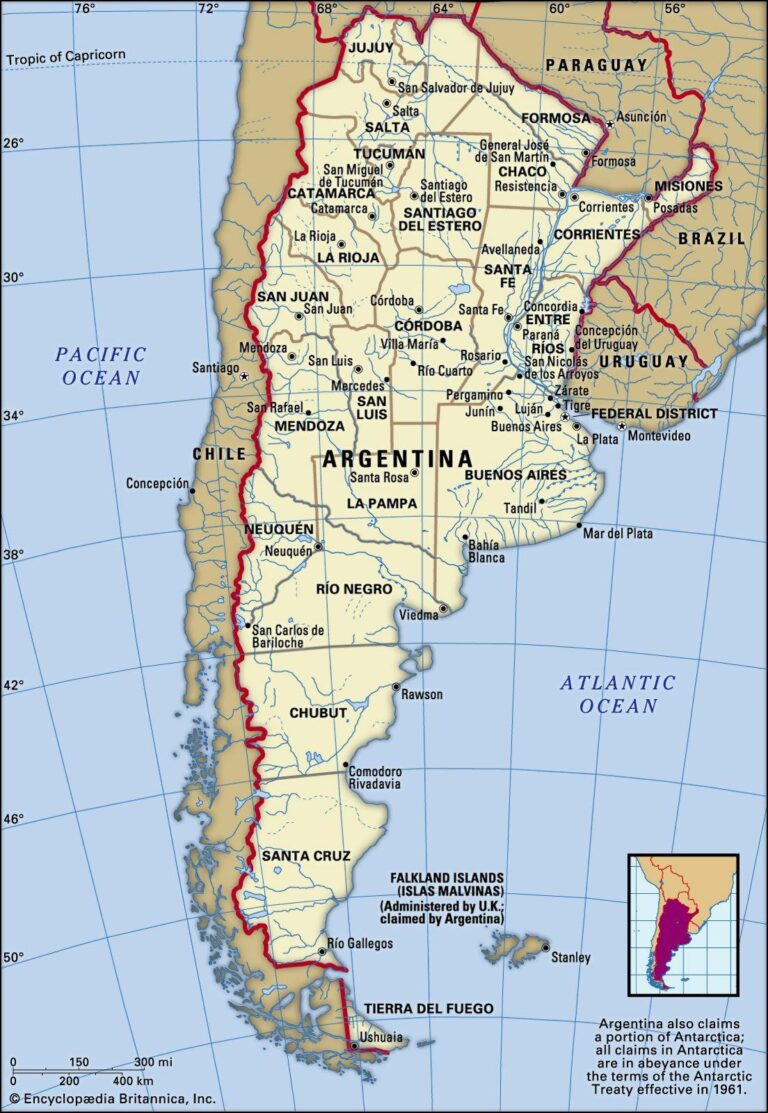Argentina’s economy, once hailed as one of Latin America’s most promising, has been severely destabilized by a series of drastic economic measures that experts liken to wielding a chainsaw rather than a scalpel. Facing spiraling inflation, mounting debt, and dwindling foreign reserves, the nation now finds itself in urgent need of financial assistance – turning to the United States for support. This article examines the root causes of Argentina’s economic freefall, the policies that contributed to its current crisis, and the potential implications of its growing reliance on U.S. aid.
Argentina’s Economic Collapse Leaves Nation Facing Severe Financial Crisis
Argentina’s financial turmoil has reached unprecedented levels, with the government’s recent fiscal policies accelerating the nation’s freefall. Rapid inflation, spiraling debt, and a plummeting currency have sent shockwaves through every sector, forcing businesses and families alike into deep uncertainty. Experts warn that without immediate and significant international aid, the already fragile economy risks collapse, potentially triggering widespread social unrest and a deepening humanitarian crisis.
Key Indicators of the Crisis Include:
- Inflation rates soaring above 100% annually
- Unemployment climbing steeply, now nearing 15%
- Foreign debt surpassing $300 billion with limited repayment capacity
- Sharp decline in foreign investment and capital flight
| Economic Indicator | 2019 | 2024 |
|---|---|---|
| Inflation Rate | 54% | 102% |
| Currency Value (ARS/USD) | 60 | 290 |
| GDP Growth | -2.1% | -4.5% |
| Unemployment Rate | 9.8% | 14.7% |
How Years of Mismanagement and Inflation Devastated Argentina’s Economy
Argentina’s economic collapse did not happen overnight; it is the byproduct of decades marked by poor fiscal policies and relentless inflation. Successive governments have grappled with unmanageable debt, excessive government spending, and currency devaluation, creating a perfect storm for financial instability. Instead of addressing structural issues, many administrations resorted to short-term fixes like printing money and imposing price controls, which only amplified inflation rates to staggering levels. The peso has lost significant value, gutting purchasing power and leaving millions struggling to afford basic goods.
The consequences ripple through every sector – producers face soaring operational costs, businesses hesitate to invest, and public trust in economic governance erodes. Argentina’s inflation rate has often topped triple digits, with prices doubling or tripling in mere months, pushing the country deeper into crisis. The lack of consistent policy reforms has led to a cycle of defaults and bailouts that further undermine investor confidence, worsening the overall economic hemorrhage.
- Debt defaults: 9 defaults since 2001, eroding creditworthiness.
- Inflation spikes: Annual rates exceeding 50% in recent years.
- Currency devaluation: Peso lost over 70% of value in the last decade.
| Year | Inflation Rate (%) | Currency Devaluation (%) | ||||||||||||
|---|---|---|---|---|---|---|---|---|---|---|---|---|---|---|
| 2015 | 26.9 | 35 | ||||||||||||
| 2018 | 47.6 | US Assistance Critical for Stabilizing Argentina and Restoring Investor Confidence
Argentina’s economic turmoil has reached a critical juncture where external support, particularly from the United States, is no longer a luxury but a necessity. With inflation soaring and foreign debt defaults amplifying market anxiety, the stability of the nation hinges on strategic interventions. US involvement could provide not only financial relief but also a much-needed vote of confidence to global investors wary of the Argentine market’s volatile trajectory. Key areas where US assistance can make a tangible impact include:
To Wrap It UpAs Argentina grapples with the economic fallout from years of fiscal mismanagement and policy failures, the country’s reliance on external assistance has become increasingly apparent. With its financial stability hanging in the balance, Argentina’s path to recovery will depend heavily on cooperation with international partners, notably the United States. How the nation navigates this challenging terrain will be critical not only for its own future but also for the economic dynamics of the broader region. |




